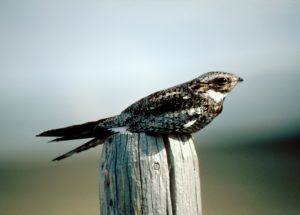Q and A with Nerine Dorman (and Moi!)
It’s our joint book birthday today, and to celebrate we’re talking about our inspirations and writing choices. The conversation began over on Nerine Dorman’s blog, where we discussed liminal characters, facing adversity, magic and monsters. Now we’re looking at a bit of world-building, mythology, heritage and religion.
Read the rest of this discussion here [link]
Cat: Let’s talk worldbuilding and symbolism. We’ve both lived many years in the same area in South Africa. I can recognise it in your writing, but can you explain a little more about how where you live influences your worldbuilding in your (gorgeous!) setting for The Firebird.
Nerine: The Firebird was, in fact, inspired by my visit to Mauritius many years ago, but I draw heavily also on my regard for nature. I think [laughs] both of us often use the images of birds in our writing – and birds themselves are liminal creatures, said to travel between worlds. Many years ago I was hiking in the Karoo at twilight (my favourite time of day, really) and I went through a little wooded dip. Right in front of me was a nightjar, and there was one of those moments that you remember forever, where I looked the bird right in the eye before it took to wing – and it was one of those moments that seemed to last for an eternity, a sort of mental snapshot. From what I understand, they’re pretty difficult birds to see – so it was one of those defining moments in my life I’ll carry with me to my grave. Obviously I’ve been itching to use a nightjar in a story for ages, and it wasn’t that difficult to construct a mythology behind it. The birds themselves are often associated with ill omen … and my imagination provided the rest.
I realise I indulged quite heavily in symbolism related to nature with this story – more so than most, I suspect. Unia is very aware of the world around her, and has an almost mystical connection to it – though she’s been in denial about it for very long. (As we all are, I suspect.)
Now, let’s get back to one of my favourite characters from Empty Monsters – Tabeth. Her magic is also very much connected to nature, and at a glance she is the obvious “monster” if you take Ade’s point of view at first. And bringing her together with Ade is almost a recipe for disaster. The world seems to have no place for her (though historically, she would have been considered royalty.) Empty Monsters to a degree (I believe) is about reclaiming one’s heritage and remaking it. Am I going into spoiler territory when we discuss Tabeth’s relationship with her magic?
Cat: No, I love that the idea of Tabeth being the initial monster worked, and she was such a difficult character to write. It would have been easy to write her as simply misunderstood, and not to have her bargain with Ade (which is…iffy to say the least) and instead have her find some wholesome heroic way of achieving her end goal. But I felt that would have been unfair to her as a character. She is not simplistic, she is not an easy character to love. She is flawed, and driven, and resentful, and scared, and powerful. Her magic is what made her a monster in the view of society, but it is how society treated her that made her “monstrous”.
And reclaiming heritage and along with it, your own sense of self, is a huge aspect of the Hobverse books in general, I think.
But the use of magic and monsters brings me back to Unia’s story. You have your “demons”, your evil forces that the Fennarin are trying to eradicate. And then you have The Firebird – without spoiling, there’s a lot packed into your novella that deals with power, the price we pay for it, and control. There is a lot of hypocrisy threaded through the story, and I love that. Nothing is ever simple, and the choices characters make have nuance. There’s no easy “good” choice. There were obvious nods to the blindness of following religious leaders, but talk to me about Unia’s conflicts, and how she seems to have two different desires/motivations that pull her apart.
Nerine: Yeah, I loved the fact that Tabeth has this goal that’s not really all that altruistic. Like nearly every living being, she wants her place in the world and she’s prepared to go to great lengths without any guarantee of a final payoff. And even then, what I appreciated about the story is the way characters like Ade and Tabeth constantly have to re-evaluate their motivations – there are no clear rights or wrongs, especially in a society that is in effect post-colonial. Where do you draw the line when it comes to restitution? Not an easy question to answer and one that I think we often have to ask.
We can break power down to a very basic explanation: the ability to create change. Unia, as a daughter of an orchid farmer, whose future may have been to marry a man and continue her family’s matrilineal line … or become a scribe … it wasn’t ever cast in stone. She felt powerless, and yet when she was younger, she saw the monks in the Fennarin order, and she wanted what they had – perceived power. Only she hadn’t realised what she’d lose in the process: family, a sense of personal identity not subservient to the dogma of the pseudo-religious order to which she eventually belongs. Her brother is the opposite: in order to embrace freedom for himself and his long-subjugated people, he opens himself up to a partnership (or possession) with supernatural forces. How this resolves … well. No spoilers. I think we’ve said enough. 




